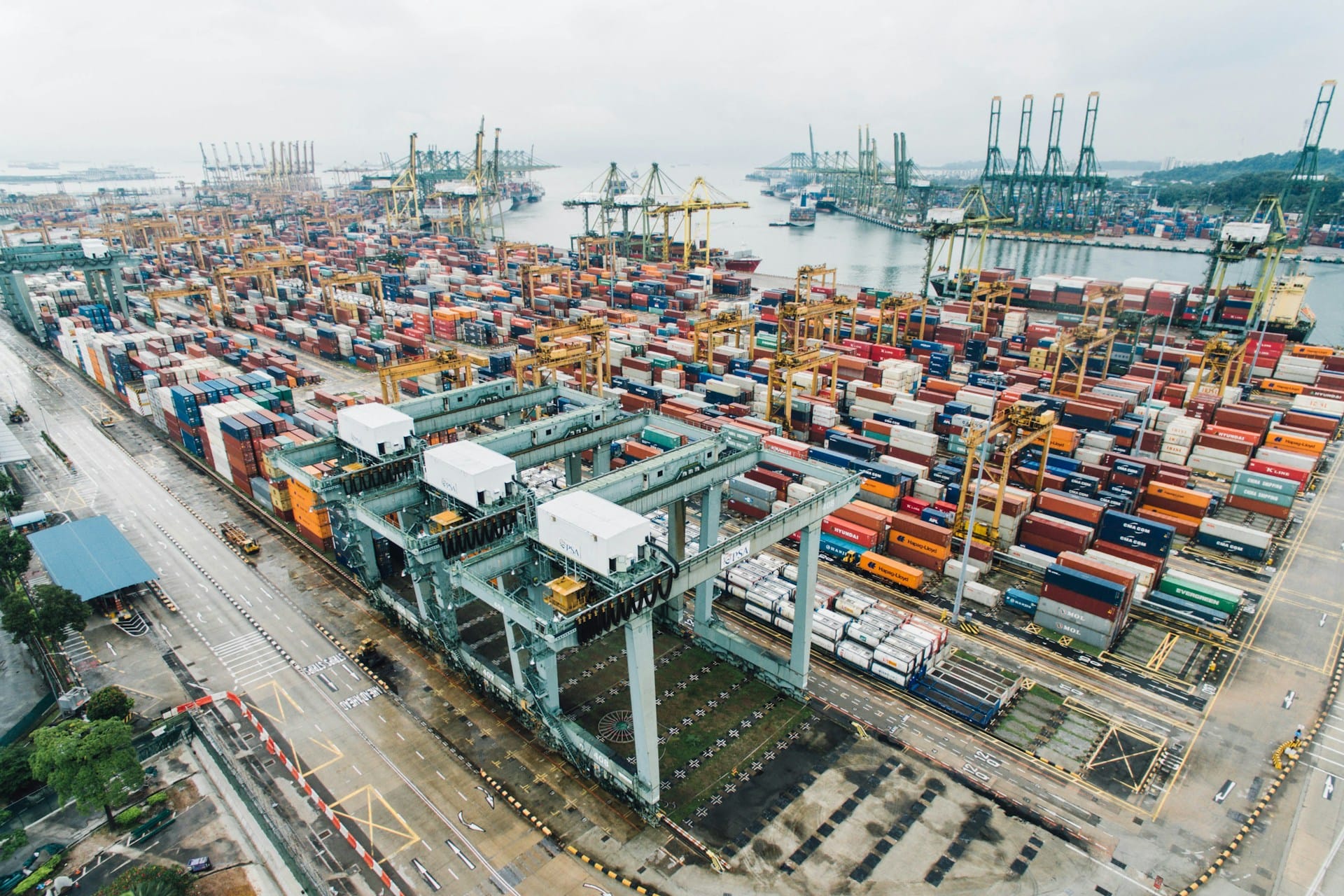Despite a recent push for a more pragmatic, competitiveness-focused policy approach, which could indicate declining enthusiasm for green policies, the European Union continues to advance its sustainability agenda.
European laws primarily target large EU and non-EU companies operating within the EU, but their ripple effects are being strongly felt far beyond – including by manufacturers and suppliers around the world. Despite their absence from the policymaking process, smaller EU and non-EU suppliers who are not directly within the scope of these laws will increasingly find themselves under pressure to comply through the orders of companies directly in scope of those legislative acts.
Whether you’re a textile factory in Bangladesh, a mid-sized manufacturer in Italy, or a food processor in Vietnam, if your customer is an EU-based company – or selling to the EU – EU sustainability legislation may soon become your responsibility, too.
New rules on climate disclosure and due diligence such as the EU Corporate Sustainability Reporting Directive (CSRD), the EU Corporate Sustainability Due Diligence Directive (CSDDD), the EU Forced Labour Regulation (FLR), and the EU Deforestation Regulation (EUDR) will most likely generate a considerable impact on supply chains and how businesses operate globally. This is also true for product design rules under the Ecodesign for Sustainable Products Regulation (ESPR), and the Digital Product Passport (DPP). While several of these legal acts are, or will be, included in upcoming simplification packages, they will still exert considerable influence over how companies operate.
This article kicks off a new series exploring how European sustainability laws are impacting manufacturers and suppliers – both within the EU and globally.
Last year, we published a high-level overview of the impacts of EU textile policies on global suppliers. In this new series, we’ll break down the legislation shaping supply chains, operations, and reporting obligations. This first piece focuses on sustainability due diligence laws, including the CSDDD, CSRD, Forced Labour Regulation, and EUDR.
Want someone with deep experience and connections in the EU to help guide your sustainability strategy? Get in touch!
How Cross-Sectoral Rules on Supply Chains Affect Suppliers All Over the World
Many cross-sectoral laws such as the CSRD, CSDDD, FLR, and EUDR impose new requirements on large companies (CSDDD and CSRD) or companies of any size placing their goods on the EU market (FLR and EUDR). But these companies cannot meet their obligations without collecting information from, or enforcing changes in, their supply chains.
Let’s explore what each of these policies means for suppliers.
Corporate Sustainability Reporting Directive (CSRD)
CSRD requirements will lead suppliers to be increasingly expected to provide information on carbon emissions data, water usage statistics, labour practices documentation, and more. The directive mandates large companies operating in the EU to disclose extensive environmental, social, and governance information. But much of the required data lies outside of these companies’ own operations, in the practices and performance of their suppliers.
Suppliers who are unable or unwilling to provide this information may risk losing business, even though they are not directly targeted by the regulation. At the same time, it should be noted that smaller suppliers in the EU or globally will be protected from the requests for data that go beyond a basic voluntary standard under CSRD.
Corporate Sustainability Due Diligence Directive (CSDDD)
Despite its revision process, the CSDDD is already influencing supply chain expectations. Even if the revised directive focuses on direct business relationships, large companies will need to address adverse impacts deeper into the supply chain if provided with information of an environmental and human rights risk. Reputational concerns and stakeholders’ scrutiny are also putting pressure on large brands to adopt a holistic traceability approach, beyond immediate partners.
This dynamic is already triggering a broader set of expectations for suppliers, regardless of whether they are technically in scope. Suppliers may now need, for example, to estimate their carbon footprint, monitor their emissions, ensure visibility on where the materials they use are coming from, introduce internal policies against labour exploitation and report on their impact on local communities.
Forced Labour Regulation (FLR)
The FLR is designed to stop goods associated with forced labour entering the EU. It will push companies active in the EU to collect further supply chain information, and to introduce policies affecting suppliers to combat modern slavery risks. Companies placing goods on the EU market will need to conduct due diligence on the presence of forced labour throughout their entire supply chain, triggering implications for suppliers around the world.
The FLR empowers EU member states authorities and the European Commission to assess a company’s due diligence efforts against the risk of forced labour. Should these efforts be found insufficient relative to the risk, products can be banned from entering the European market. As such, suppliers will be encouraged to provide extensive information on their labour practices, or face potential exclusion from the common market.
EU Deforestation Regulation (EUDR)
Another regulation, the EU Deforestation Regulation (EUDR), has similarly far-reaching implications. It requires suppliers, even outside the EU, to be able to collect their geo-location coordinates and follow a no-deforestation approach if they export commodities such as cattle, rubber, coffee, cocoa, and palm oil and certain derived products to the European market.
To ensure that products sold or imported into the EU are not linked to deforestation, even suppliers not exporting directly to Europe may face new documentation demands if they are part of an EU-bound supply chain.
Suppliers Need Time to Prepare
Leaving time for suppliers to adapt is too often overlooked by policymakers and brands. Suppliers need time, expertise, and resources to align internal policies, update data management systems, and rework operations. Yet, during the legislative process, and following implementation of the laws, the needs of upstream suppliers are often underrepresented or entirely missing from the conversation.
In preparation for the implementation stage, the producing countries and their suppliers have additional needs, which should be considered by the policymakers.
- Suppliers and institutional partners in producing countries would benefit from information, capacity-building and other support, for example as part of EU development cooperation or other funding streams. Without clear guidance or support, these suppliers are often left scrambling — or worse, risk losing contracts with EU buyers, which undermine the EU broader developmental objectives.
- When sustainability laws evolve quickly, or if enforcement timelines are unclear, it creates uncertainty that makes investment in EU compliance for non-EU suppliers more difficult, thus further increasing the needs of the suppliers for timely information and support.
- Brands can also help suppliers by providing timely heads-up and support to their customers to adjust and introduce the required changes. However this is not a regular practice yet and could be more widespread.
To sum up, suppliers – especially those in developing countries – need clear signals, early engagement, and support from buyers and policymakers to prepare adequately. At the same time, they must proactively monitor relevant EU policies, identify and make use of available resources, and prepare the necessary changes, be it collection of data, introduction of policies, or operational changes.
Below is a list of key starting points to keep in mind.
How Suppliers Can Start Preparing
- Be aware of existing information resources: For example, the European Commission is developing a CSDDD helpdesk with resources specifically for suppliers, including those in partner countries. A similar platform will be created to support the EU Forced Labour Ban. For the EUDR, guidance is already available – along with several EU-funded support programmes operating in partner countries.
- Get ahead of compliance requirements: be aware of the compliance requirements and start preparations in advance. You might need to get yourself acquainted with the Voluntary Reporting Standard for SMEs. While it will be revised soon, it gives a good indication of the type of data that may be asked by brands. Even though the final version of CSDDD is still evolving, the OECD Guidelines can serve as a practical benchmark on which to orient yourself and start preparing.
- Engage with your customers now: Start the conversation. Ask your EU-based customers what laws apply to them, and what information or actions they’ll need from you. Clarify timelines, expected documentation requirements, and areas where you may need support. Proactive communication builds trust and can help shape more realistic, supportive compliance strategies.
Why Early Action Matters for EU Supply Chain Compliance
EU-based companies and companies operating in the EU market cannot meet their regulatory obligations without the active participation of their suppliers. Whether through data requests, updated contracts, audits, or capacity-building programmes, suppliers are becoming essential partners in ensuring compliance with Europe’s fast-evolving sustainability landscape.
This article is the first of a series on the importance of EU sustainability legislation in the textile and agri-food sectors for manufacturers and suppliers. Stay tuned and sign up to our newsletter to get our next article on product legislation, from ESPR to the Waste Framework Directive and many others. In the meantime, check out our interview with Compreli, a manufacturer which is well aware of the importance of EU law for textile manufacturers.


